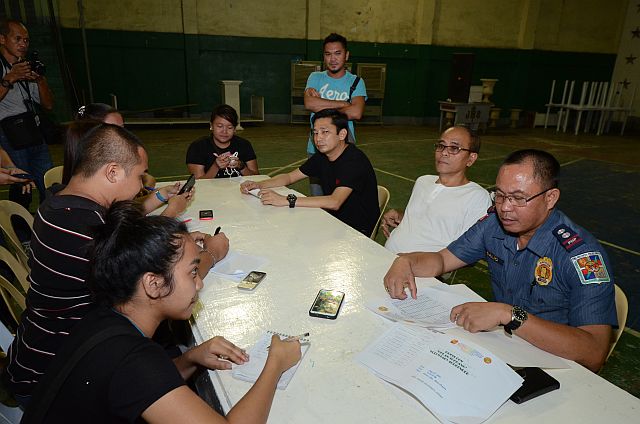
The Provincial Health Office (PHO) and the Cebu Provincial Anti-Drug Abuse Office (CPADAO) will soon conduct trainings for barangay health workers (BHWs) and staff of provincial hospitals to assist drug surrenderers needing medical attention. (CONTRIBUTED PHOTO/CARCAR CITY LGU)
With hundreds of drug dealers and users showing up to voluntarily surrender in the different police stations across Cebu, the province now appears to have a problem that’s better than dealing with drug-related crimes: what to do with self-confessed drug criminals who want to live a life away from crime.
To address the better problem, the Cebu Provincial Capitol has ordered the training of government social workers and health professionals so that they can properly manage the “intervention” needed for drug pushers and users who have surrendered to authorities.
The Cebu Provincial Anti-Drug Abuse Office (CPADAO) and the Provincial Health Office (PHO) will be conducting the trainings on barangay health workers (BHWs), municipal health workers (MHWs) as well as personnel from the province’s 16 district and provincial hospitals.
“What will happen is they will be trained for psycho-educational treatment and life skills training so that they can do the actual interventions to our drug surrenderees. We really have to capacitate them because they are the ones on the ground,” said CPADAO head Carmen Remedios Durano-Meca.
The series of trainings will begin this weekend and will be piloted in Naga City, she added.
The CPADAO is set to wrap up today a series of district orientations which they had conducted with the anti-drug abuse councils (ADACs) of the different cities and municipalities of the province.
Meca said that aside from ADAC members, the chiefs of police as well as municipal and city health workers in the different congressional districts were asked to attend the orientations to equip them with skills on how to conduct the proper profiling, assessment and classification of drug surrenderers depending on the graveness of their drug addiction.
Meanwhile, the actual interventions training for BHWs will focus on surrenderers with severe levels of addiction.
“With the orientations, our frontline workers are ready to administer profiling as well as conduct counselings on the surrenderees,” Meca said.
CPADAO records show that there are now more than 26,000 drug surrenderers all over the province.
The Provincial Health Office (PHO) said nurses and other medical personnel in district and provincial hospitals will be trained to administer medical attention to surrenderers suffering from withdrawal symptoms or psychosis due to drug use.
“Initially, we will focus on the assessment. We’re using one assessment tool now. We have to assess them so we can facilitate what interventions can be done to them,” PHO officer-in-charge Dr. Zoraida Yurango told reporters yesterday.
For his part, Cebu Gov. Hilario Davide III said he will be supporting the programs and other recommendations made by the CPADAO.
“If we have to spend, then we may have to use part of our funds for CPADAO or we can submit a supplemental budget if it’s necessary for this year,” Davide said in his press conference yesterday.